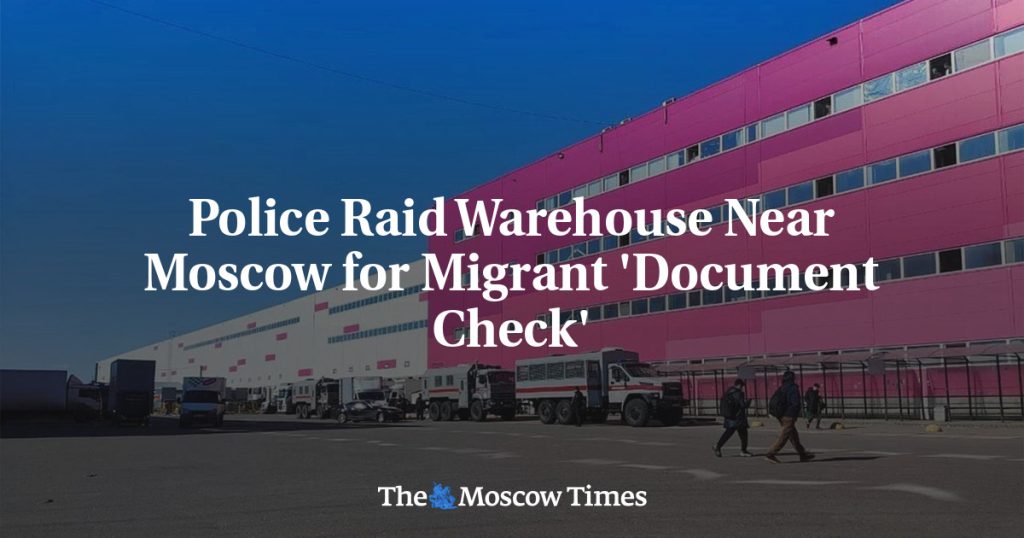Russian police recently detained dozens of workers at an online retailer Wildberries’ warehouse in Elektrostal on suspicion of breaking migration laws. Wildberries’ press service confirmed that the workers underwent a document inspection, with 38 workers chosen for additional checks with law enforcement. The raid targeted migrant workers and comes after tensions escalated following the deadly attack at the Crocus City Hall concert venue in Moscow, where at least 140 people were killed and 360 others wounded. State media suggested that Russian authorities may intensify their crackdown on illegal migration.
The raid at Wildberries’ warehouse in Elektrostal is not the first time the company has faced issues related to migrant workers. In November, a similar raid took place, prompting concerns about potential losses for sellers due to delays. This time, Wildberries assured that its operations were not affected by the police inspection. Additionally, police searched Wildberries’ Moscow headquarters in January following a fire at its St. Petersburg warehouse. The series of events reflect a growing concern about illegal migration in Russia, particularly in the aftermath of the concert massacre outside Moscow.
The most recent raid at the Wildberries’ warehouse raises questions about the treatment of migrant workers in Russia and the government’s response to illegal migration. The arrests of workers could impact the company’s operations and lead to additional scrutiny of businesses employing foreign nationals. The heightened tensions following the concert massacre suggest that Russian authorities are taking a stricter approach to managing migration. Wildberries’ statement about the majority of workers returning to their duties indicates that the company is cooperating with law enforcement to address any issues related to its workforce.
The situation at Wildberries’ warehouse is an example of how businesses in Russia are navigating the complexities of immigration policies and potential legal repercussions. The company’s previous warning about potential losses due to migrant raids highlights the economic implications of such actions. The fact that the warehouse operation was not disrupted during the recent inspection indicates that Wildberries has measures in place to ensure business continuity despite external challenges. As the government cracks down on illegal migration, companies like Wildberries may need to reassess their hiring practices and compliance with migration laws.
In the context of the concert massacre and the subsequent focus on illegal migration, the raid at Wildberries’ warehouse underscores the broader security concerns facing Russia. The company’s cooperation with law enforcement and the assurance that its operations were not affected demonstrate its commitment to adhering to regulations. However, the ongoing scrutiny of businesses with migrant workers highlights the complexities of managing a diverse workforce in a changing regulatory environment. As Russia continues to address security threats and migration issues, businesses like Wildberries will need to stay vigilant and proactive in ensuring compliance with the law while maintaining their operations.
Overall, the detention of workers at Wildberries’ warehouse in Elektrostal is just one example of the challenges faced by businesses in navigating Russia’s immigration policies and security concerns. The incident reflects broader tensions around illegal migration and the government’s response to security threats. Wildberries’ response to the situation showcases a commitment to cooperation with law enforcement and maintaining business continuity despite external disruptions. As the country grapples with security issues, businesses will likely face increased scrutiny, requiring them to adapt their practices to ensure compliance with evolving regulations.


